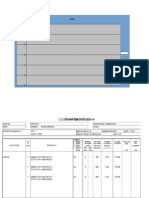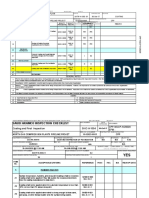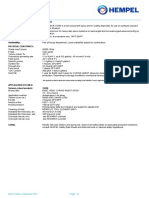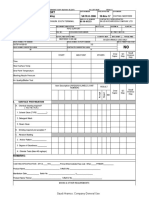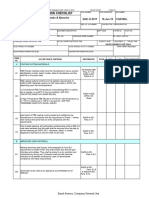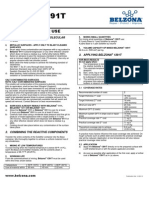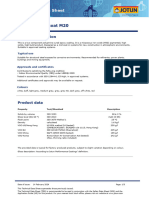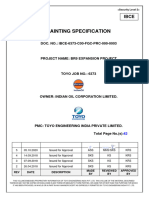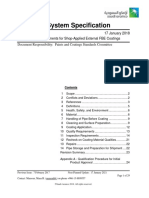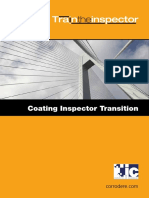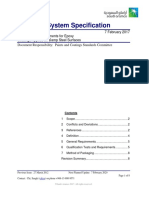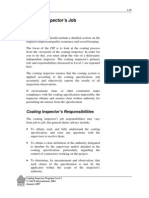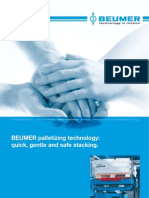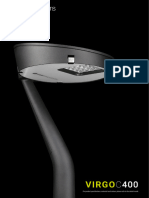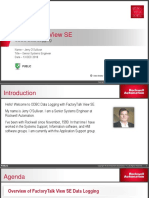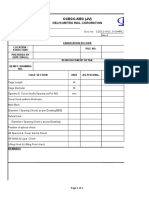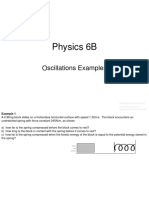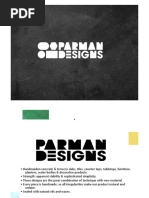Basic Coatings Inspector / Coating Inspector Program - CIP Level 1
CIP Level 1 Course: -
Completing the Coating Inspector Program (CIP) Level 1 Course is the first step to earning the Basic
Coatings Inspector Certification. The CIP Level 1 Course provides entry level knowledge of coating
materials, techniques for surface preparation and application, and inspection testing and documentation.
After successfully obtaining your Basic Coatings Inspector certification you will be able to perform basic
coating inspections on steel substrates using nondestructive testing and instrumentation
Who should pursue and apply?
Although specifically designed for coating inspector trainees, this program benefits anyone interested in
gaining a better understanding of coatings and inspection including:
• Project managers, supervisors/foreman and engineers
• Maintenance and quality assurance/control (QA/QC) personnel
• Contractors and specification writers
• Coating manufacturers and technical sales representatives
• Fabricators and welders
• Paint applicators and blasters
Learning objectives:
• Recognize how corrosion forms and the role protective coatings play in preventing corrosion
• Describe the role of the inspector as it applies to responsibilities, authority, safety, ethics,
communication, and decision-making.
• Differentiate surface preparation equipment, methods, and standards for solvent cleaning,
hand/power tool cleaning, wet/dry abrasive blasting, and waterjetting.
• Identify quality control issues, recognizing design and fabrication defects and coating failure modes.
• Compare and contrast different generic coating types, modes of protection and curing mechanisms.
• Differentiate coating application by type, including brush, roller, airless, conventional, and plural
component spray.
• Utilize job specifications, safety/product data sheets and a variety of inspection report documentation
including NCRs, daily reports and inspection test plans
• Perform non-destructive inspection procedures for environmental conditions, visible/nonvisible
contaminants, surface profile, film thickness, and holiday detection under the supervision of a qualified
inspector
• Comply with the AMPP Coating Inspector Code of Conduct
End of course exam:
A practical exam is administered at the end of the course.
CBT Exam:
A final exam will be through Computer Based Testing (CBT) within 12 months from the date of the course.
Course completion:
To receive a training Certificate of Completion and continuing education units (CEUs) students must attend
the entire course and successfully pass each learning assessment, including the hands-on practical exam given
on the last day of class.
Page 1 of 2
Address: 35 Ebn Sandr Street, 1st Floor, Saraya El-Kobba, Cairo-Egypt
Tel.Fax: (+202) 22569141 Mobile No: (+2) 01146035198
E-Mail: training@nace-egypt.org & nace.egypt@yahoo.com
Web: www.nace-egypt.org
�Dress Code:
There are strict lab day dress code requirements for this AMPP course. The fifth day of the class is typically
lab day. Before being transported to the lab location, the instructors will inspect each student to ensure they
have adhered to the lab day dress code. The dress code must be followed by students and instructors alike.
Please see the following acceptable and not acceptable attire for lab day:
The following is acceptable:
• Long Sleeved Shirts
• Trousers
• Steel Toe Boots or Industrial Shoe Covers
Not acceptable:
• Tank tops
• Shorts
• Open Toed Shoes (such as sandals)
• Tennis Shoes (running shoes)
Course Hours:
Start Time End Time
Day 1 8:00 AM 6:00 PM
Day 2 8:00 AM 6:00 PM
Day 3 8:00 AM 6:00 PM
Day 4 8:00 AM 6:00 PM
Day 5 8:00 AM 6:00 PM
Day 6 8:00 AM 4:00 PM
Hope that meets your requirements and satisfaction.
For more information or clarification, please go through website (www.ampp.org), or feel free to
contact us at your convenience.
Best regards
Maged Shams
Chairman AMPP Egypt Central Chapter
Page 2 of 2
Address: 35 Ebn Sandr Street, 1st Floor, Saraya El-Kobba, Cairo-Egypt
Tel.Fax: (+202) 22569141 Mobile No: (+2) 01146035198
E-Mail: training@nace-egypt.org & nace.egypt@yahoo.com
Web: www.nace-egypt.org





